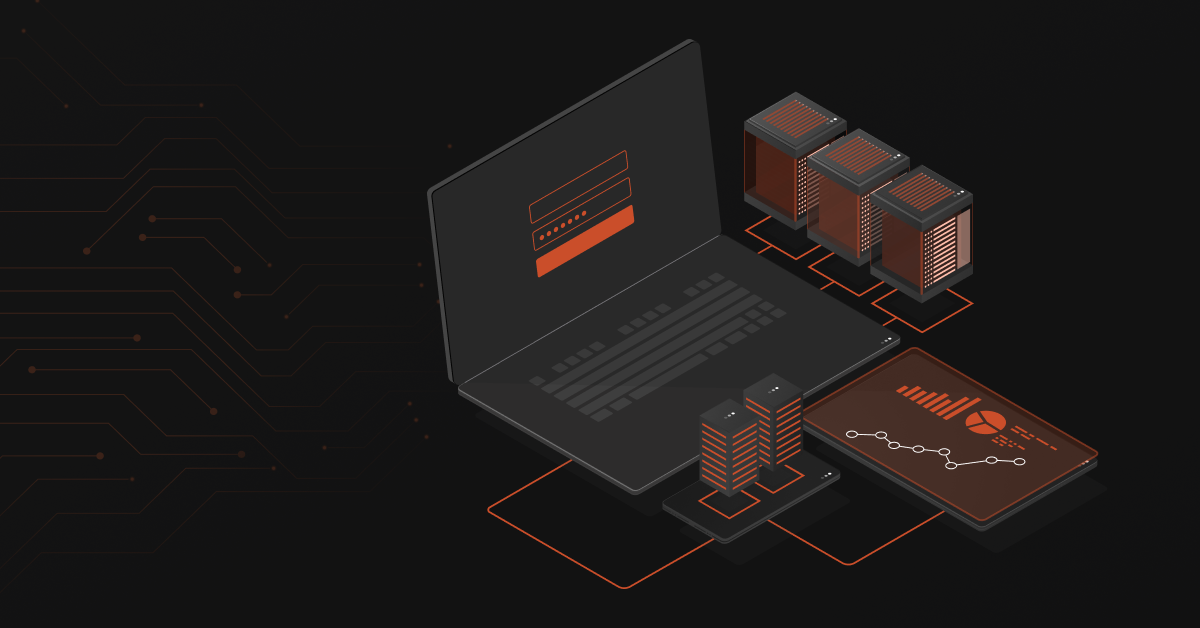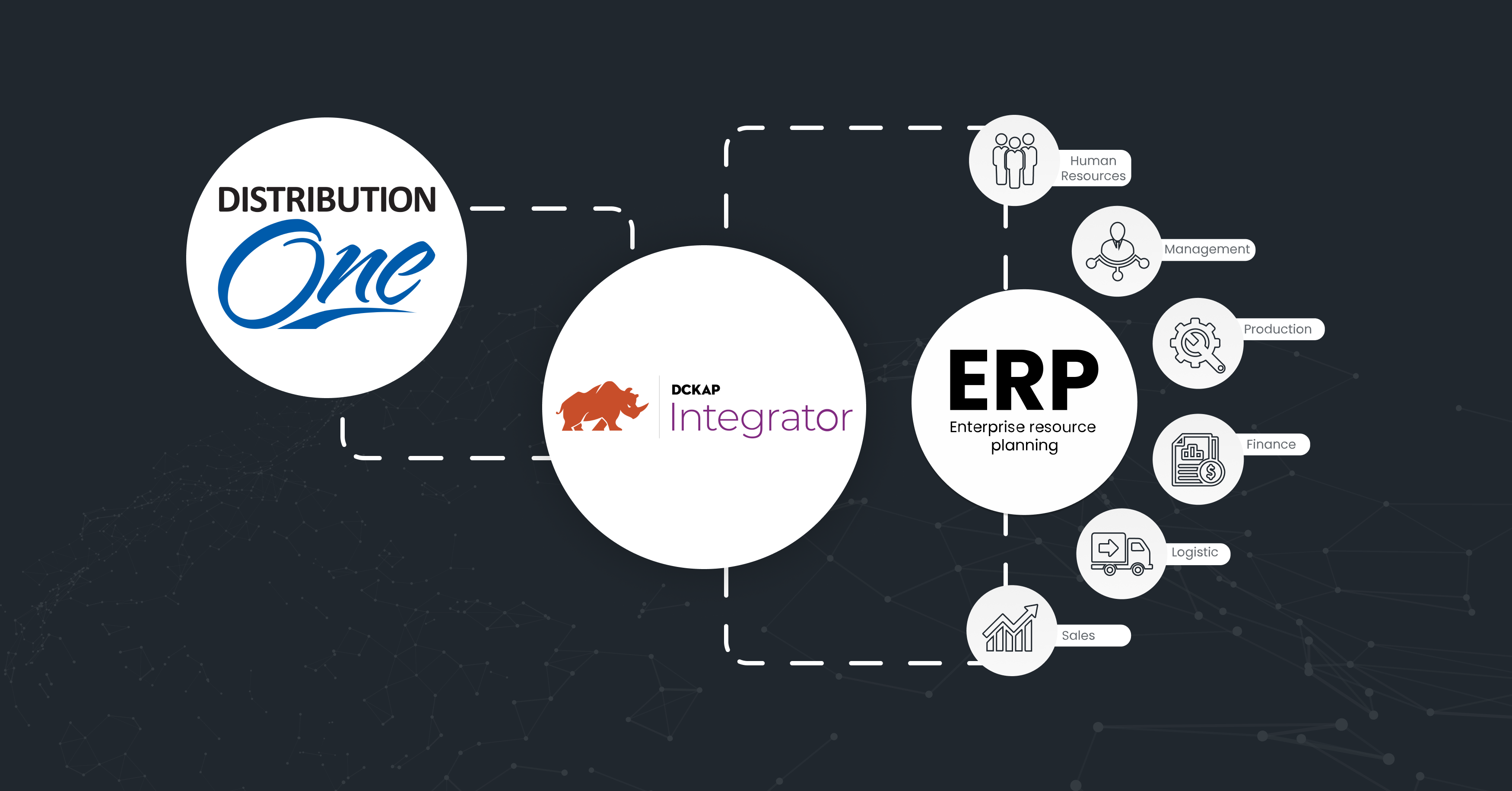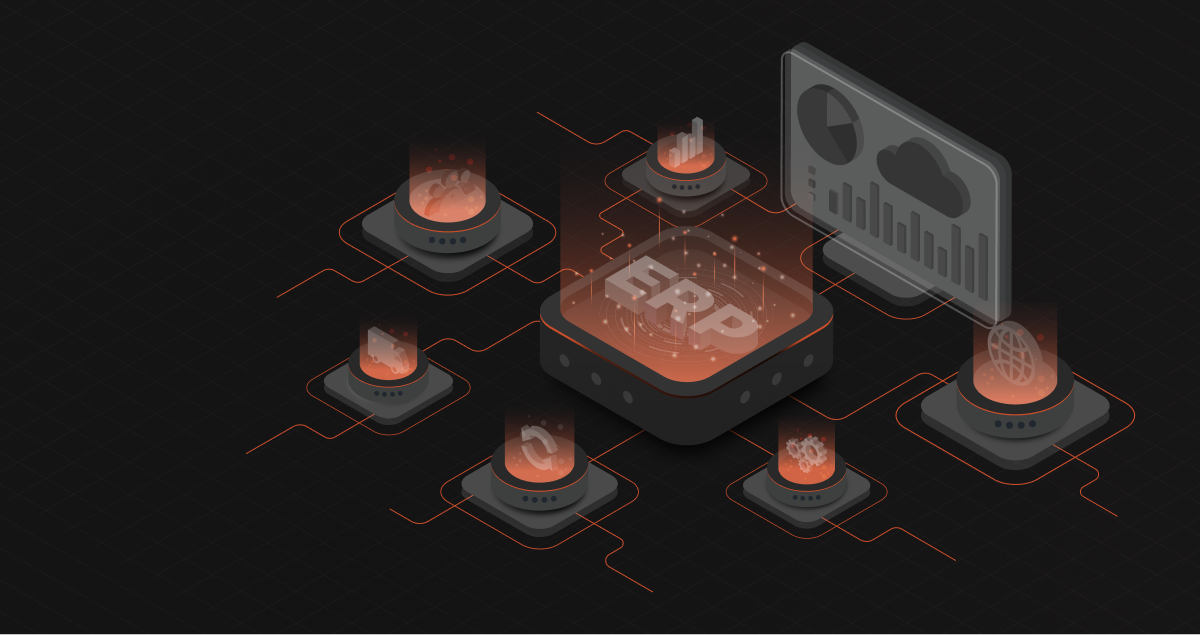Modern ERP solutions are changing the way distribution works. They make your processes smoother and increase efficiency. But that’s just the beginning. The real game-changer comes when you integrate them with your CRM, supply chain, and ecommerce platforms. That’s when everything truly starts working together.
The Top Modern ERP Choices: At A Glance
If you’re ready to leave behind in-house technical headaches or outdated legacy systems, here are some popular options to consider:
- Epicor Prophet 21
- SAP Business One
- SAP S/4HANA
- Microsoft Dynamics 365
- Epicor Kinetic
- Oracle NetSuite
- Infor CloudSuite
- Acumatica Cloud ERP
- Odoo ERP
- Sage X3
1. Epicor Prophet 21
Epicor Prophet 21 is a cloud-based ERP solution for wholesale distributors that manages inventory, procurement, finances, and customers. Distribution organizations may improve order management and profitability with their industry-specific capabilities.
Key Features
- Track, forecast, and replenish inventory in real-time.
- Advanced order processing with rules-based workflows and automation.
- It has integrated CRM for sales pipelines and customer management tools.
- It involves barcode scanning, RF tracking, and efficient picking and packing.
- The system is accessible via mobile devices for field and remote management.
Pros
- The product is specially designed for distribution.
- Provides effective inventory and warehouse management which is crucial.
- The company offers agile cloud deployment and mobile access.
Best Suited For
Wholesale distributors require robust inventory and order management technologies tailored to the distribution sector.
2. SAP Business One
SAP Business One optimizes financial management, inventory oversight, procurement, and customer relationship management for small to medium-sized enterprises. Its user-friendly interface and flexible functionalities make it a favored modern ERP software for evolving enterprises seeking to concentrate business operations.
Key Features
- Track budgets, cash flow, and accounting.
- Real-time warehouse management, inventory management, and stock optimization.
- Integrated scheduling, planning, and tracking manufacturing solutions.
- Track sales prospects, manage customers, and improve service.
- Dashboards and reports for decision-makers.
Pros
- The product seamlessly integrates with other SAP products.
- Customizable modules for various business functions.
- The system is scalable for future growth.
- Strong analytical tools and real-time reporting.
Best Suited For
The platform gives small to mid-sized manufacturers and distributors operational control and business growth opportunities. Businesses that need customization and a solid modern ERP solution that expands with growth should use it.
3. SAP S/4HANA
The in-memory HANA database powers SAP S/4HANA, an advanced ERP system that delivers real-time analytics and business processes. Real-time data insights and improved processes help huge organizations perform smoothly in a digital environment.
Key Features
- Faster data analysis and reporting using SAP HANA.
- Quick integration of financial, supply chain, and manufacturing data.
- The integration of Artificial Intelligence and machine learning augments predictive analytics and automation.
- Flexible deployment alternatives for organizations in both cloud and on-premises settings.
- Solutions Tailored to Specific Sectors. Customized features for the manufacturing, retail, and automotive sectors.
Pros
- Real-time data processing and insights.
- Advanced AI/ML tools for automation.
- It is highly scalable and customizable for large enterprises.
Best Suited For
It is ideally suited for large organizations and manufacturers requiring real-time insights. Beneficial for complex automation in international operations, particularly those with intricate supply chains.
Recommended read: ERP Middleware: All You Need To Know [+FAQs]
4. Microsoft Dynamics 365
Microsoft Dynamics 365 is a flexible cloud-based ERP and CRM solution for all sizes of enterprises. It blends financial, operational, and customer relationship capabilities for total business management.
Dynamics 365 works seamlessly with Office 365 and Azure to enable enterprises to make data-driven choices using AI-driven insights and business intelligence.
Key Features
- Planning, tracking, and reporting on goods automatically, and in real-time.
- Automation of buying things, keeping track of supplies, and managing relationships with suppliers.
- Automating processes and making predictions are made possible by AI that is built in.
- On one platform, you can see customer info, make sales, and do marketing.
- Create a business-specific workflow.
Pros
- The system has strong integration with Microsoft Office, Teams, and Azure.
- It can be expanded and works for both small and big businesses.
- AI-powered data to help you make better choices.
Best Suited For
Medium to large manufacturers and distributors utilize Microsoft products and seek to leverage AI and cloud computing. It benefits companies that require strong CRM and ERP capabilities on a single platform.
5. Epicor Kinetic
Epicor Kinetic is an ERP system that runs in the cloud and focuses on manufacturing. Real-time information about production, finances, the supply chain, and managing customers helps manufacturers make their work easier and cut down on wasteful production.
Key Features
- Tools for shop floor scheduling, production planning, and quality management are available.
- Visibility across procurement, inventory, and logistics improves supply chain management.
- Built-in BI tools analyze and report data in real-time.
- Manufacturing-specific modules are offered. These modules are suitable for use in make-to-order, engineer-to-order, and discrete production processes.
- The system offers flexibility for on-premises, cloud, and hybrid implementation.
Pros
- The focus was on manufacturing-specific needs.
- Real-time analytics for optimizing production.
- The system is scalable and flexible with cloud-based deployment.
Best Suited For
Medium to large manufacturers are looking for an ERP system with strong production management and real-time analytics to improve efficiency and reduce waste on the shop floor.
Also see:
6. Oracle NetSuite ERP
Oracle NetSuite ERP manages corporate processes in real-time within the cloud environment.
NetSuite can scale with businesses of all sizes, from startups to huge enterprises. Real-time visibility and efficient operations across business functions are its hallmarks.
Key Features
- It utilizes automated accounting, closing, and taxation. With numerous currencies and subsidiaries, it supports global operations.
- Supply chain transparency, real-time monitoring, order administration, procurement, and demand forecasting.
- Resources for procurement, production, logistics, and vendor management are accessible.
- The company offers fully integrated CRM and e-commerce platforms for customer engagement and transaction management.
- Customizable dashboards, real-time data, and detailed reports display corporate performance.
- Multi-language, multi-currency, and multi-subsidiary support make it ideal for worldwide companies.
Pros
- A complete cloud-based solution is available. This solution facilitates remote work and instant access from any location. This reduces IT expenses by removing on-premise equipment.
- Real-time data and reporting provide a comprehensive overview of the business.
- Tailoring for manufacturing, distribution, retail, financial services, and additional sectors.
- The system supports foreign currency conversions, tax compliance, and global corporate management.
Best Suited For
Medium- to large manufacturers and distributors seeking a cloud-based ERP solution with global capabilities and robust financial management features may consider NetSuite ERP.
It benefits multi-location firms or those with complex supplier networks and financial operations. Multi-channel support from NetSuite helps firms integrate ecommerce and CRM.
7. Infor CloudSuite
Infor CloudSuite is a cloud-based ERP solution for manufacturers and distributors. Its industry-specific modules let business owners choose the essential features they require. With its role-based user experience and AI-driven insights, Infor CloudSuite helps businesses optimize operations in real-time.
Key Features
- Organize product development and production.
- It requires picking, packaging, and shipping optimization tools.
- Integration of demand forecasting, procurement, and logistics improves supply chain management.
- These include organizational role-specific capabilities and data displays.
- Embedded AI and machine learning for predictive insights and process improvement.
Pros
- Distribution and manufacturing industries are prioritized.
- AI-powered analytics assist decision-making.
- Businesses can select only the features they need with modular design.
- The cloud provides flexibility and scalability.
Best Suited For
Manufacturers and distributors of automotive, aerospace, and industrial machinery—necessitating high customization, modular solutions, and AI-driven analytics for operational optimization—could utilize it.
8. Acumatica Cloud ERP
Acumatica Cloud ERP is versatile, adaptable, and user-friendly for expanding enterprises.
Financials, distribution, production, and project accounting are available on any device. Acumatica’s mobile-first approach appeals to businesses with remote workers or multiple locations.
Key Features
- Accounting, budgeting, reporting tools.
- Manufacturing workflow scheduling and management in real-time.
- Warehouse, inventory, and order processing.
- A mobile-first platform for remote system access.
- Support for global companies with a variety of currencies and locations.
Pros
- User interfaces are intuitive and dashboards are customizable.
- Any gadget can obtain real-time data.
- Entire production and distribution modules.
- It’s highly scalable for SMBs.
Best Suited For
Growing small to medium-sized manufacturers and distributors need a cloud-based ERP system with real-time access and flexibility.
9. Odoo ERP
The flexible, open-source ERP system Odoo manages CRM, ecommerce, manufacturing, and inventories. Small to medium-sized businesses can choose from several Odoo features.
Key Features
- Generate MES in real-time. Track production orders, bills of materials, and work orders.
- Tracking inventories and processing orders in real-time with automated workflows.
- Manage customer relationships and interface with e-commerce platforms for simple sales.
- The ERP offers a modular design feature. Access a variety of apps to customize the ERP for your organization.
- It is open source. The large developer community provides plugins and customizations.
Pros
- The service is affordable and flexible.
- The modular design makes it highly adaptable.
- There is strong community support and many integrations available.
- Open-source platforms offer full system control.
Best Suited For
It is ideal for medium-sized manufacturers and distributors who require a flexible, cheap ERP solution that can grow. Odoo’s open-source nature appeals to organizations with in-house IT or developers.
10. Sage X3
Sage X3 ERP is robust for mid-sized manufacturing and distribution companies. There are instruments for production, inventory, procurement, and finances. Sage X3, known for its simplicity and ability to streamline complicated corporate processes, provides real-time data insights.
Key Features
- Integrated planning, scheduling, and control tools for better production management.
- Supply chain and distribution systems can manage inventory, order fulfillment, and supplier relationships in real-time.
- Advanced accounting, budgeting, and financial reporting skills are part of financial management.
- Dashboards and reports for KPI (key performance indicators) tracking in real-time.
- Both cloud and on-premise deployment options are available to meet corporate objectives.
Pros
- Manufacturing and distribution are prioritized.
- It has customizable dashboards and is simple.
- Real-time data analytics improves decision-making.
- There are flexible deployment options available.
Best Suited For
A simple, comprehensive ERP solution with real-time information is appropriate for medium-sized manufacturers and distributors.
What’s Next?
After deploying an ERP system, firms must ensure data consistency across platforms. ERPs manage finance, inventory, and production, but they rarely work alone. To fully realize the benefits of ERP, integration with other tools and systems becomes essential.
The Need For Integration:
Manufacturers and distributors typically use various specialized systems in addition to their ERP. These may include:
- CRM systems to track sales, manage customer service, and manage customer relationships.
- Supply chain management systems to orchestrate logistics, inventory, and procurement.
- eCommerce platforms that enable online transactions, oversee product inventories, and promote customer engagement.
Data silos within these tools, and the teams using them, can lead to data silos. The dispersion of critical information across many platforms can create discrepancies, redundant data entry, and inefficiencies. Consequently, decision-making is impeded, resulting in diminished operational efficiency. Proper integration between these systems prevents data silos.
Integration For Real-Time Data Flow:
For manufacturers and distributors, the capacity to transmit data easily across systems is key to sustaining precise inventory levels, synchronizing orders, managing customer information, and guaranteeing efficient supply chain operations. Integration facilitates real-time data exchange between the ERP system and other applications, permitting various departments to access current information.
For example:
- Sales teams can access real-time data to provide customers with accurate availability and delivery timelines.
- Supply chain managers can track procurement and logistics in real-time to avoid stockouts.
- Customer service teams can quickly retrieve customer order history from the CRM and ERP to resolve issues faster.
DCKAP Integrator: Make Your Systems Talk To Each Other
DCKAP Integrator can seamlessly integrate your ERP with CRM, supply chain management tools, ecommerce, PIM and more. Manufacturers and distributors can streamline their operations with this technology, and enjoy benefits including:
- Reduced manual data entry by automating ERP-connected system data synchronization.
- Reduced data source differences to ensure consistency.
- Real-time system updates improve decision-making and response times.
DCKAP Integrator has been consistently recognized as a High Performer in its category, and enjoys a 4.7/5 star rating on G2 after over 50 reviews. It is especially appreciated for its customization, key features such as its advanced mapping and modifier, and for being back by a team of experienced integration experts.
Conclusion
Adoption of ERP optimizes internal operations, but to maximize its benefits, integration with other business systems is necessary. The DCKAP Integrator streamlines this complex process, synchronizing data in real-time and enhancing manufacturing and distributor efficiency.
Unifying your CRM, supply chain, and ecommerce platforms with your ERP system results in smooth processes, consistent data, and better decision-making. Speak to our integration experts to know how you can take your choice in ERP to a whole new level.
Contents




